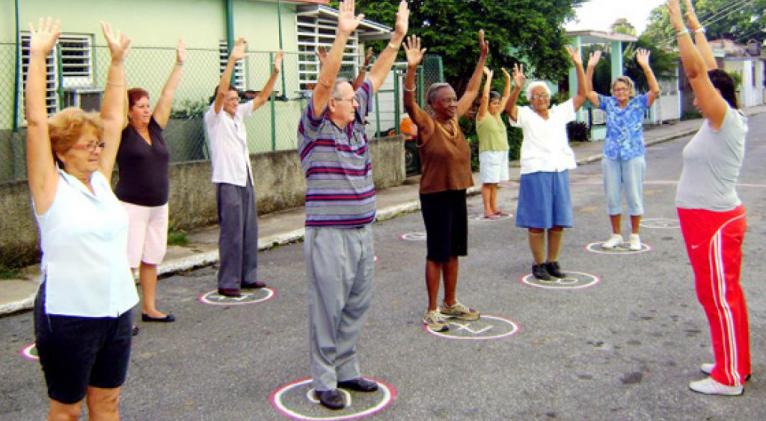Male chauvinism in 3D

Throughout generations, there have been signs of male chauvinism in Cuba. Nonetheless, some researches reveal that a different sort of man has borne.
If you walk through a park or other public spaces in this island not only looking, but analyzing, you may realize that there are barely men among senior citizens doing tai chi to improve their body and spirit.
If any, you may find one at the back end of the group.
The answer to this phenomenon does not lie in the life expectancy for women and men. I found it in a casual chat between two old men in my neighborhood.
- Felipe, why are you doing these exercises where everyone is looking at you?
- And so what? Being an old man is not a crime.
- It is not. The crime is to accept it. Macho men do not get softened up, buddy, no matter what. If your back hurts, you hide it. If your knees hurt, you hide it. Airing your pains is a female thing.
It seems that Felipe ignored such advices because I saw him among the group the next day, rising his legs and arms with vivid enthusiasm. But how many people are not enjoying the benefits of this alternative due to these sexist prejudices?
There are even young people who openly declare himself against male chauvinism and cook and clean the house without noticing that such actions multiply stereotypes and sexist prejudices.
I could witness myself such a thing. I was walking down the street and I saw a young boy lighting his own cigarette.
Quickly, I asked him to let me light mine and very nicely, he advised me:
- Lady, do not smoke in the street. It is ugly.
- But you are smoking, too.
- Yes, but I am a man. It is different.
I could not say a word as his grandfather called him. It was the same man who advised Felipe. Is it inherited? I trust some of these “heritage” can fall into oblivion as time passes by.
Science involved
But it takes time. A research on different ways of “being a man” carried out two years ago in Havana, “ratifies” it.
The analysis was made through different techniques to 125 men (21-60 years old) who worked for a construction company in Havana. The results indicated that power, domination, competence, and control are still paramount in the existence of hegemonic masculinity.
Simultaneously, it was concluded that weakness, feelings and emotions in men can be seen as femininity traits and they must be avoided, as intimacy among men.
The research showed that self-control, dominance, and control over the environment are essential in the security of men. A help-seeking behavior in men shows signs of weakness and incompetence.
However, according to Soura Formental, Iyamira Hernandez, and Teresa Fernandez, leading researchers, “there are group of men in Cuba who began to enjoy a new male sexuality, distant from fears, doubts, traumas, and impositions, suppressions, and loneliness.”
Translated by Sergio A. Paneque Diaz / CubaSi Translation Staff













Add new comment